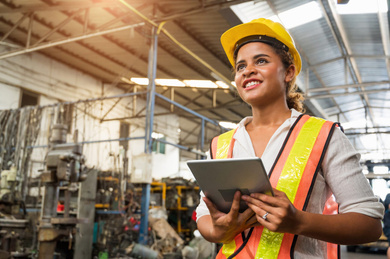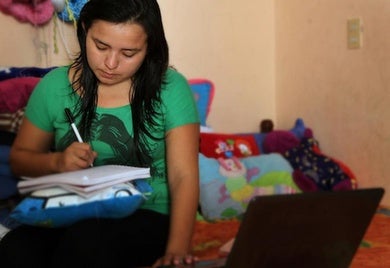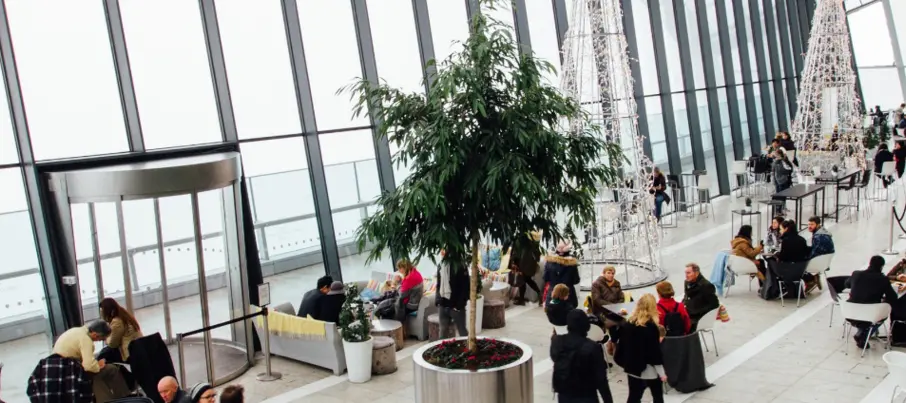Blogs Navigation
Sustainable BusinessRecent posts

Addressing gender-based violence from the private sector: the experience of Laboratorios Bagó
Francisco Méndez, CEO of the pharmaceutical company, shares his company's efforts and achievements in fostering an inclusive and safe work environment.

How Responsible Investments Can Empower Young Women and Girls in Miches While Boosting Tourism
In partnership with Fundación Tropicalia, IDB Invest fosters a more inclusive and sustainable growth path in the Dominican Republic by focusing on their untapped potential.

A Few Very Good Reasons to Protect the Integrity of Gender Bonds
Latin America and the Caribbean has become a leading region in gender bond issuance aimed at bolstering women’s empowerment. These instruments offer a promising capital market solution to mobilize funds towards projects that help accelerate parity.

Bring your own WHAT to class???
Seguir a @BIDSecPriv BYOD, not to be confused with BYOB, stands for Bring Your Own Device and is an emerging trend in education. With the penetration rate of mobile and other devices skyrocketing both globally and in Latin America and the Caribbean (LAC), many youngsters are simply inseparable from their devices. The number of mobile subscriptions was estimated to reach the seven billion mark in 2013, higher than the human population (Faille & Morrison, 2013).

Smart Energy for a Sustainable Future
Seguir a @BIDSecPriv My life began in a small town and has taken me to many fascinating places – Dusseldorf, Caracas, Santiago and Washington, DC, among them. My journey has taught me a lot about sustainability as it relates to both individual lifestyle decisions and business decisions. There are several trends that piqued my interest in energy and sustainability.

Three lessons from the German "Mittelstand"
Can Latin America and the Caribbean (LAC) be inspired by the the German “Mittelstand”? In Germany, the “Mittelstand,” or small and medium enterprise (SME) sector, is thriving. A conference last week in Stuggart, Germany, hosted by the Federation of German Industries (Bundesverband der Deutschen Industrie e. V.), an umbrella association that represents sector associations, firms and millions of workers, highlighted investment opportunities for SMEs. What I uncovered while participating on the Mittelstand panel were several salient linkages to LAC’s SME and green growth sectors.

MOOCs: The region's next big thing?
What do massive open online courses (MOOCs) have to do with private sector development in Latin America and the Caribbean? The concept is to create fee and open content for students to reach scale and allow access, impacting not just the students in a physical classroom but thousands of students who participate via the internet. MOOCs enable people interested in learning to take a course online on their own time to learn about an interesting topic, develop a new skill for work or learn how to deal with a new problem. Students can also take courses from accredited schools around the world.

Eight ways women can lead with passion
I have to be honest. Until very recently, the words “leadership” and “passion” were not part of my generation’s lexicon. Having to use them together in a sentence, I for one was flat out uncomfortable. Thanks to conversations about "leaning in," the "quest for perfection" and "why women still can't have it all," a dialogue was started - albeit at a bit of a distance from Latin American and the Caribbean professionals. At the IDB headquarters in Washington, DC, the Vice Presidency for the Private Sector sought to bring that dialogue closer to home. Over a hundred colleagues and I attended a conversation with Inez Murray, CEO of the Global Banking Alliance for Women. The personal insights shared left staff smiling, debating and, most importantly, reflecting.

Sharing is caring: Two solutions for more sustainable living
Have you ever considered how much you use your most valuable items? A personal automobile, for example, is only used five percent of the time – even less in urban areas. Fortunately, private and public sector actors are realizing how little we use individual items and proposing unique ways to be a bit more utilitarian, environmentally-conscious and community-oriented. The key is sharing.


